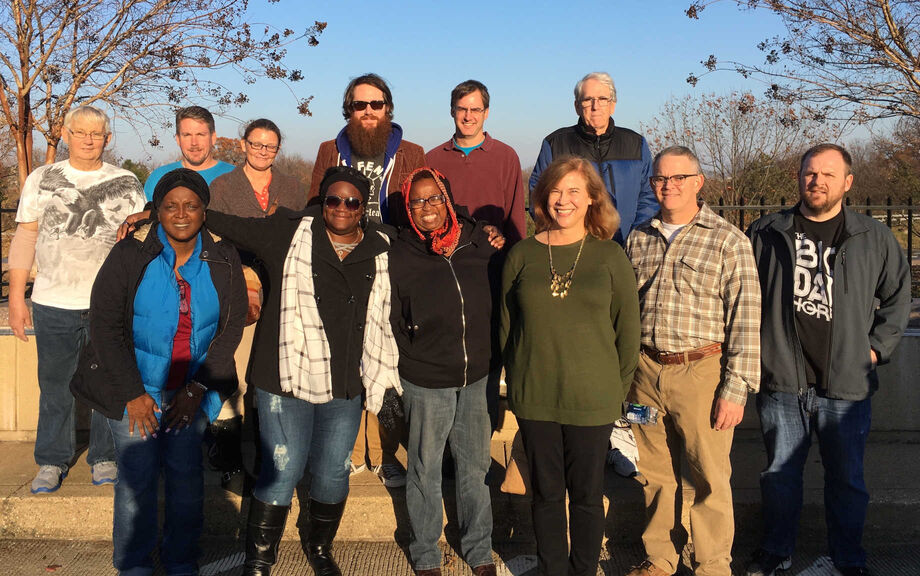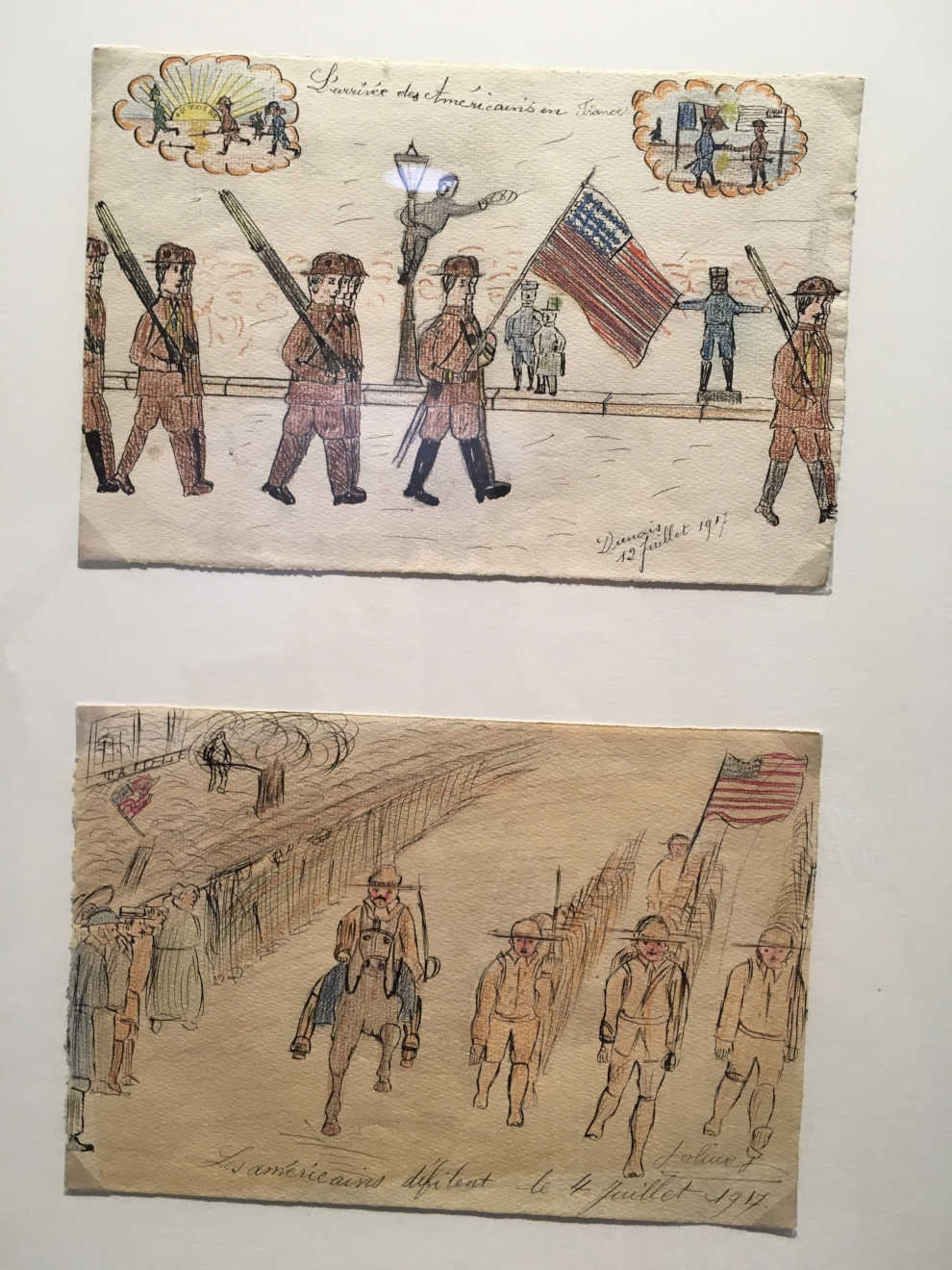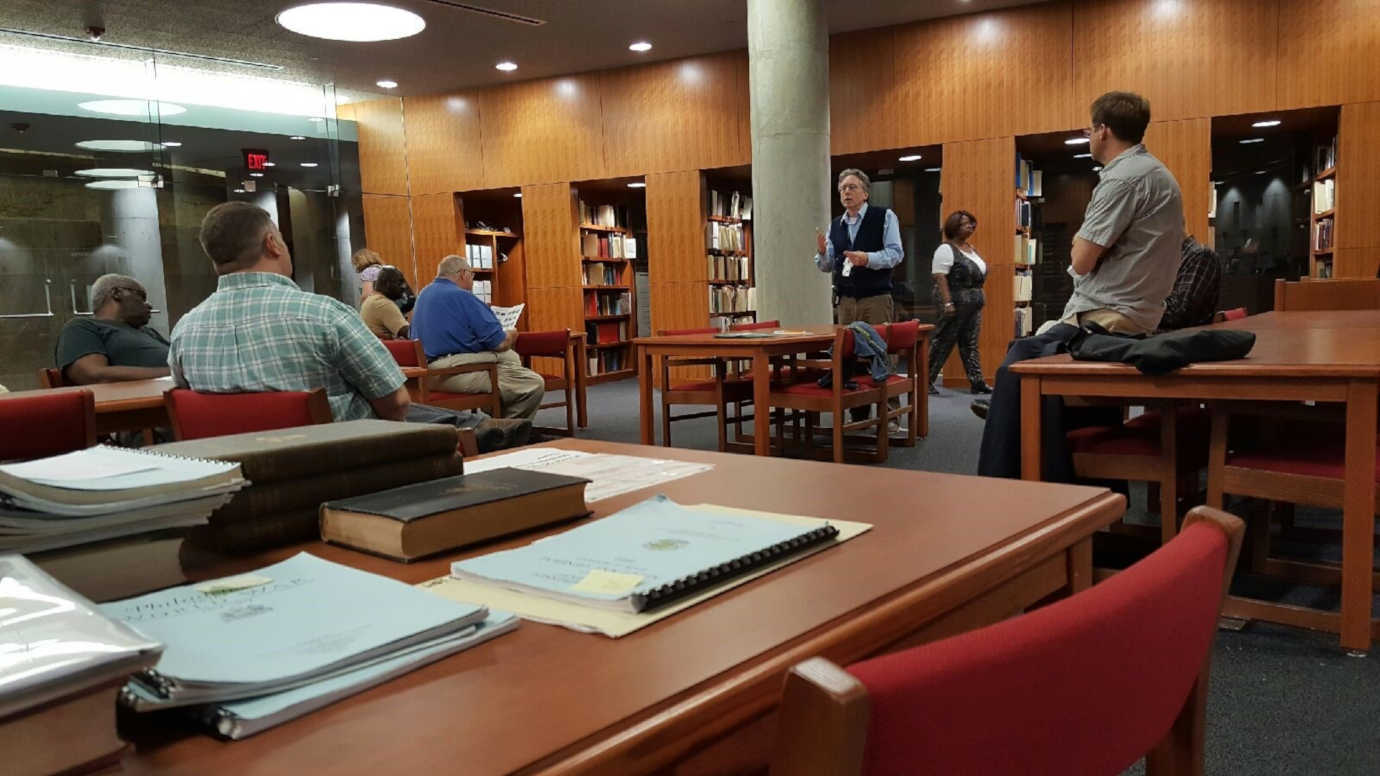
Program participants at Arlington National Cemetery during their trip to Washington D.C. Photo Courtesy of project director Alex Vernon.
Through an NEH grant, the Central Arkansas Library System gathered veterans and civilians to reflect upon experiences of war. In the Dialogues on the Experience of War program, veterans participated in eight weekend retreats over two years. They read and discussed nonfiction, novels, poetry, and oral histories and shared their stories. During expert-led trips to national museums and memorials in Kansas City and Washington D.C., veterans visited the National World War I Museum, Arlington National Cemetery, the National Archives, and the National Portrait Gallery. One participant described one trip as “eye opening and emotionally moving. I saw, touched, and experienced things that I will always remember.” Overall, Fiction & Fact offered veterans the chance to reflect on their experiences and establish bonds with each other and the broader Arkansas community.
–Veteran participant

